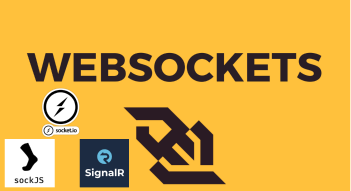Master AI & Build your First Coding Portfolio with SkillReactor | Sign Up Now
WebSocket Programming with JavaScript (Frontend)
Popular Libraries for WebSockets

WebSocket technology, while powerful, can sometimes be complex to implement directly using native APIs, especially when dealing with scalability, security, and browser inconsistencies. This is where WebSocket libraries come into play, simplifying the process and adding additional functionalities.
Here are some widely used WebSocket libraries in JavaScript:
1. Socket.IO
Overview
Socket.IO is one of the most popular WebSocket libraries, known for its ease of use and flexibility. It offers real-time bidirectional event-based communication and falls back to HTTP long polling if WebSockets are not available.
Use Cases
Ideal for building chat applications, real-time analytics dashboards, and collaborative tools. Socket.IO's ability to emit and listen for custom events suits applications requiring high-level abstractions.
2. WebSocket-Node (ws)
Overview
The 'ws' library is a simple and efficient WebSocket client and server implementation for Node.js. It's lightweight and does not include the additional overhead found in libraries like Socket.IO.
Use Cases
Best suited for server-side applications where you need a straightforward WebSocket implementation without extra features. It's often used in scenarios where performance and low latency are critical.
3. SockJS
Overview
SockJS provides a WebSocket-like object that offers a consistent, cross-browser interface. It's designed to work even if WebSockets are blocked by a firewall or proxy.
Use Cases
Useful in environments where WebSocket support is uncertain or inconsistent. It's great for applications that need to ensure real-time communication across various user environments.
4. WebSocket-Extensions
Overview
This module provides an API for managing WebSocket extensions, often used in conjunction with other WebSocket implementations.
Use Cases
Ideal for applications that need to implement specific WebSocket extensions. It's more of a complement to existing WebSocket libraries rather than a standalone solution.
5. SignalR (for .NET developers)
Overview
Although not a JavaScript library, SignalR is worth mentioning for .NET developers. It supports WebSockets, among other protocols, and provides real-time functionality for web applications.
Use Cases
SignalR is well-suited for ASP.NET developers looking to add real-time web functionalities to their applications. It handles connection management and allows broadcasting messages to all connected clients.
Each of these libraries has its strengths and ideal scenarios. The choice largely depends on the specific requirements of your application, such as the need for fallback options, simplicity, or compatibility with certain back-end technologies.